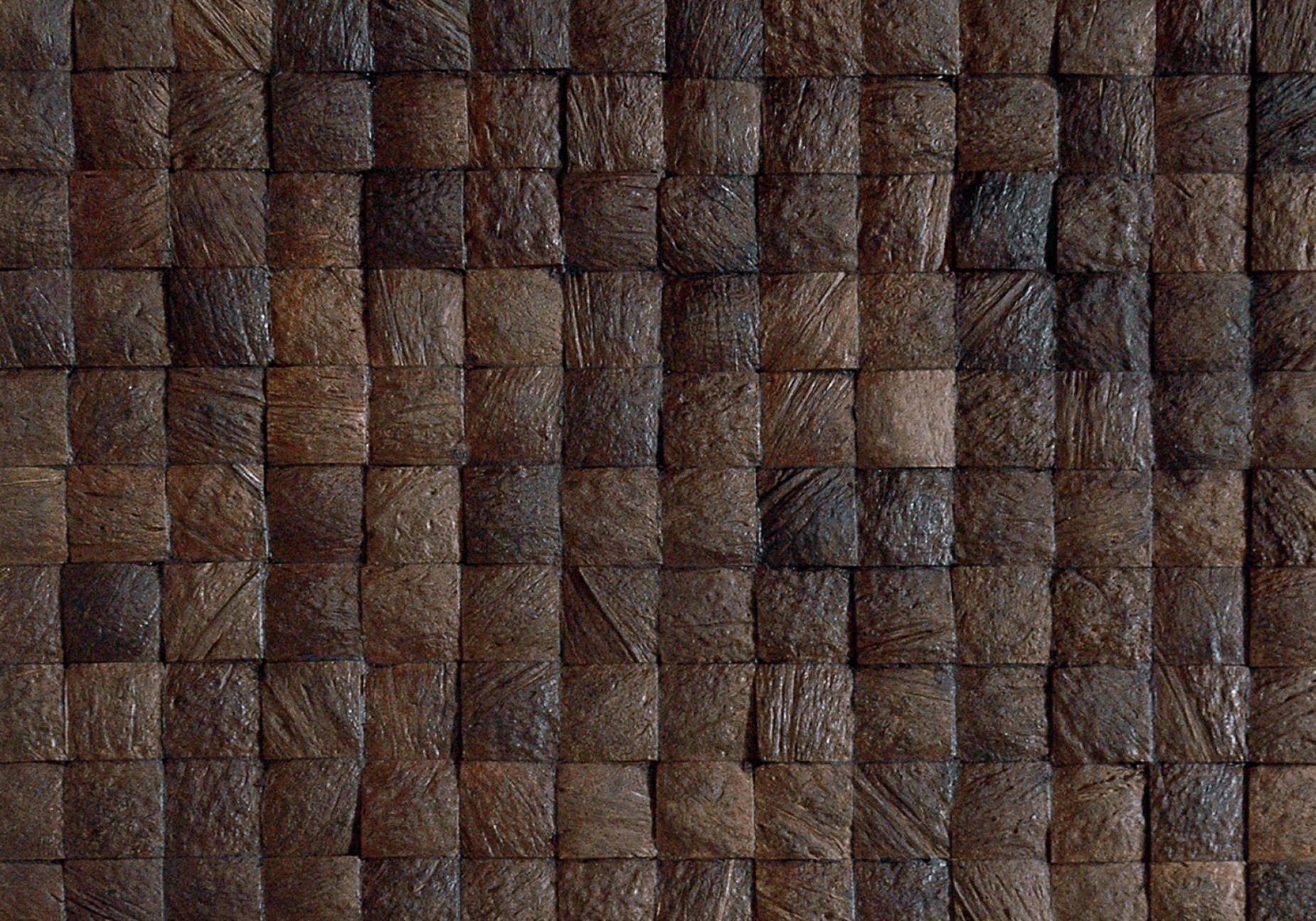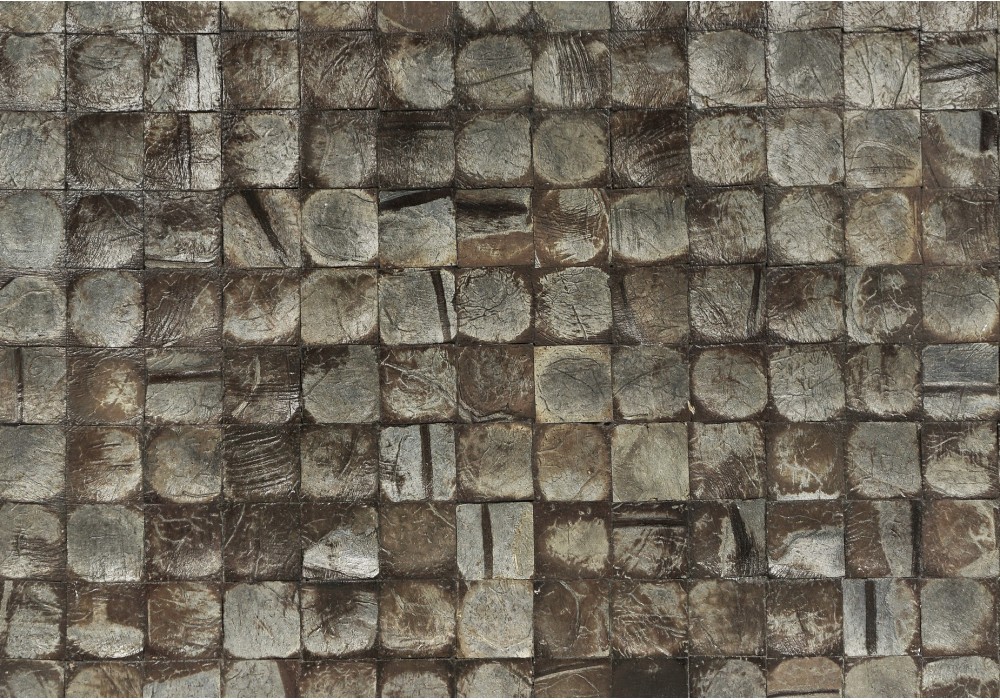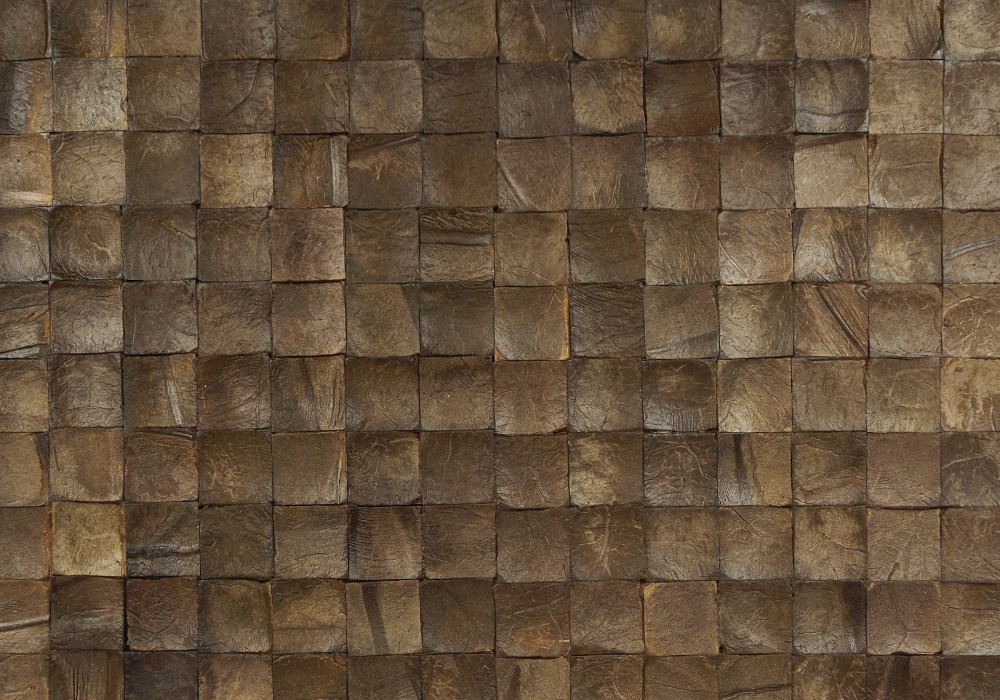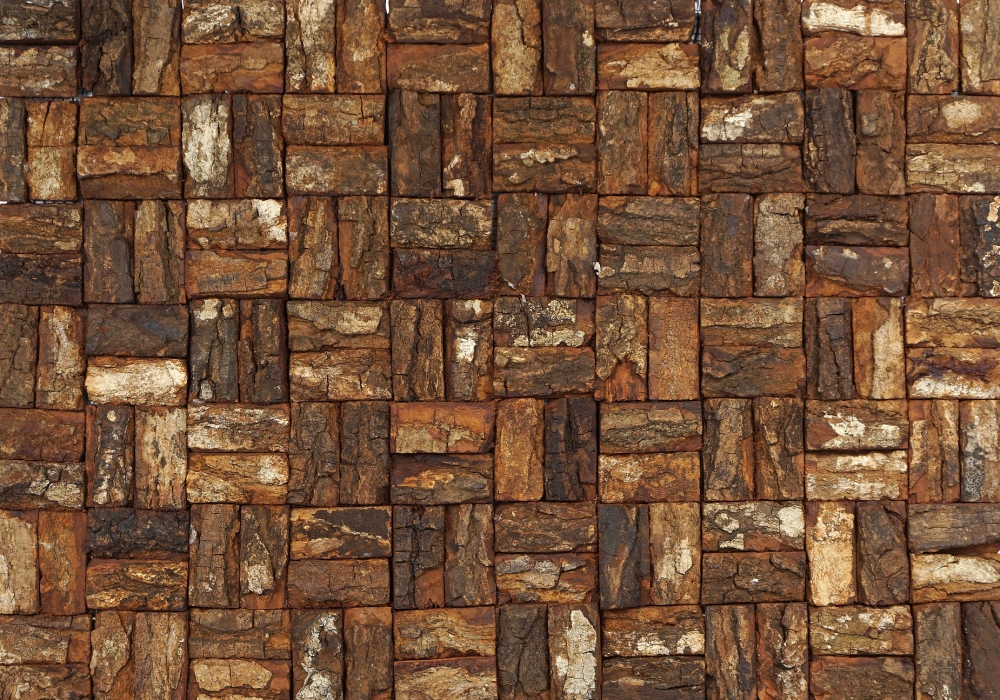Mbaru Niang coco grain espresso
The exotic wall panel Mbaru Niang is made of coconut. They are lightweight,
sustainable, splash proof, maintenance friendly, and easy to install. This model coco
mosaic tile is available in the colours: natural, dark brown.
The Mbaru Niang coco grain espresso by Nature at home creates an exclusive natural
wall, with an exotic touch. The coconut wall tiles are sustainable, decorative, ambient,
and easy to install. This unique wall panelling can be used in almost any interior, even in
damp rooms. They also improve the acoustics.
The Mbaru is a mosaic tile of 420 mm x 420 mm, where the individual pieces of coconut
(30 mm x 30 mm) are glued together. The convex side of the shell is visible. Only waterbased,
odourless adhesives, lacquer, and paints are used for the finish.
The panels are preferably for interior use. The tiles are best applied to a dark, straight or
round wall. With a flexible sealant or parquet glue, they are attached to the wall.
For maintenance, a vacuum cleaner, duster, or cloth is sufficient. The coconut wall
panelling is a warm, exotic addition to every interior.
Data sheet
- Collection
- Oulanka forest
- Material
- Coconut
- Color
- Dark brown
- Structure
- Convex and round
- Dimension
- 420 x 420 x 5 mm
- Weight/panel
- 750 gr
- Manufacturing
- The Mbaru niang is a mosaic tile of 420 mm x 420 mm, where the individual pieces of coconut (30 mm x 30 mm) are glued together. The convex side of the shell is visible.
- Weight/m2
- 4,75 kg
- Packaging
- 1,058 m2 / 6 panels
- Process
- Process the panels in 4 simple steps: 1 Let the panels acclimatise for 24 hours. 2 Saw them to size with a cutting or circle saw. 3 Apply mounting glue to the back of the panel. 4. Press the panels against the wall and admire the final result.
- Application area
- Interior; straight and round walls, also in damp rooms. Placement of this product by a gas fireplace, is only applicable if the wall does not get warmer than hand warmth.
- Maintenance
- Maintenance with a vacuum cleaner, duster or cloth is sufficient. Otherwise cleaned with a slightly damp cloth. Do not use chemicals.
For the production of the coco panels, the shell of a coconut is cut into small, perfectly measured square pieces. Hereafter, they are manually glued to larger panels in tile format. The variation in designs are obtained by using the inside or outside of the shell, where they are then vanished or painted. Only water-borne, odourless adhesives, lacquers, and paints are used in the manufacture of these original products.
Given the high poverty rate in Indonesia, the production of the tiles have created opportunities and income for native people. The production of 250 m2 can occupy at least 40 workers for a whole month. The innovative way of using former waste products as raw materials for these decorative natural panels, ensures employment in the region. For this achievement, Cocomosaic has won various prizes and awards.













